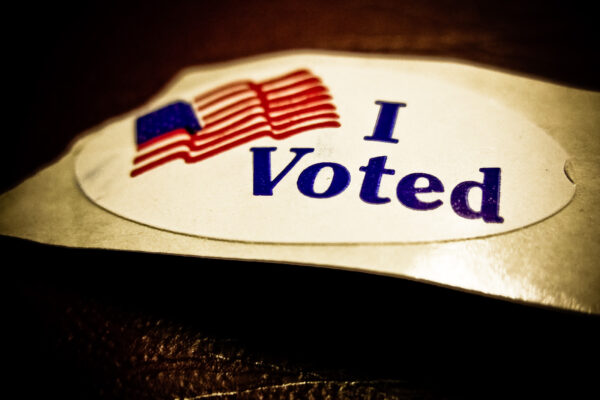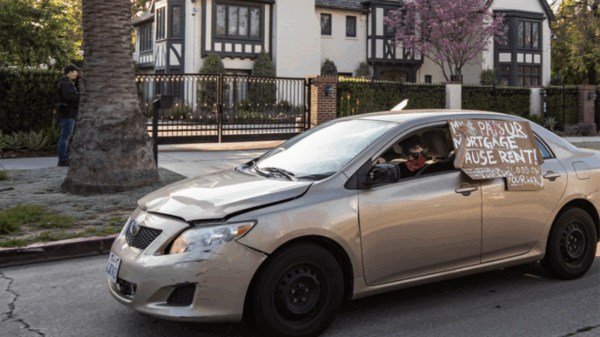We Cannot Let People Lose their Home
From the exploitation of low-wage workers, to the denial of equitable education, to the failure to protect the rights of incarcerated people, COVID-19 has made clear the failings of our society to ensure the basic rights of all.Across the nation, the COVID-19 pandemic has already resulted in widespread and devastating economic consequences. As of last Thursday, over 30 million people have filed for unemployment insurance. And, because health insurance is often tied to employment in our country, the number of uninsured or underinsured people and families in America will increase in the midst of a global pandemic. This is unprecedented and doesn’t include undocumented people who also face additional harms and exploitation.In the face of staggering unemployment numbers and climbing medical costs, millions of people living in the United States -- and 1,473,765 renters in South Carolina -- face the imminent threat of losing their homes. These consequences risk further spread of COVID-19 throughout South Carolina and undermine efforts to protect public health and well-being. Moreover, the nearly guaranteed wave of evictions would inflict far-reaching and significant economic and social harm on thousands of South Carolina residents—particularly on women, people of color, low-income residents, and other vulnerable communities.Last week we sent a letter to Chief Justice Beatty and Governor McMaster urging them to take the steps necessary to prevent South Carolinians from losing their home during a global pandemic. Chief Justice Beatty’s order to halt evictions and foreclosures until May 15 is a welcome step, but our leaders must go much further. It is critical to immediately extend the moratorium period to at least July 25 to align with the federal CARES Act. Furthermore, our state leaders must take steps to provide additional protections to renters and prevent a surge of evictions after the moratorium expires, including halting utility disconnections, establishing rent payment grace periods, prohibiting evictions due to nonpayment of rent during the pandemic, and prohibiting late fees and rent increases.Evictions and utility shut-offs will disproportionately harm communities of color -- and particularly women of color. The ACLU’s Data Analytics team analyzed national eviction data from 2012 to 2016, provided by the Eviction Lab at Princeton University, and found that on average, Black renters had evictions filed against them by landlords at nearly twice the rate of white renters. Women of color, and particularly Black women, bear the burden of eviction. The harmful impact of eviction is further compounded by other racial, gender, and socioeconomic barriers—such as wealth gaps, pay disparities, and inequities in our healthcare system.Critically, the aftermath of an eviction persists for decades, as tenants with prior eviction records face major obstacles to accessing future housing opportunities. Landlords routinely employ screening policies that deny housing to any renter previously named in an eviction case, regardless of whether the case was dismissed, occurred many years ago, or was filed on unlawful grounds. As a result, eviction often exacerbates and reproduces conditions of economic insecurity for low-income women and communities of color.Utility shut-offs also disproportionately harm communities of color. A 2017 report by the NAACP found that Black households experience utility disconnections at a higher rate than financially similar white households. For households at or below 150% of the federal poverty level, only 5.5% of white-headed households experienced shutoffs as compared to 11.3% of Black-headed households. Similarly, another study revealed that residents in neighborhoods predominantly consisting of people of color faced 27% higher energy cost burdens than those in predominantly white neighborhoods. Research further shows that Black communities disproportionately experience higher water costs, water service terminations, and water liens, resulting in negative health and economic outcomes.South Carolina must expand a comprehensive moratorium on evictions, halt utility shut-offs and prevent mass evictions after the moratorium ends. In light of the widespread and devastating impact of eviction during the pandemic, we call on South Carolina to immediately issue a comprehensive moratorium on evictions and utility shut-offs throughout the entire state that prohibits every stage of the eviction process without exceptions for types of tenants or lease violations. South Carolina must also plan ahead for when the moratorium ends to prevent mass evictions and other enduring housing consequences for tenants hurt by the pandemic.Specifically, we call on South Carolina to:


